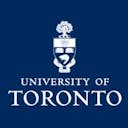My Background
Hi! I’m Arnencha and I’m from Bangkok, Thailand! I come from a high school that is located right in the center of Bangkok and follows a conventional Thai curriculum. My school is considered the best high school in the Thai system, it's the place where students who aim for Thai universities go. The students there are the smartest kids in Thailand, but not because they attend classes; almost everyone takes tutoring and extra classes outside of school time and that’s where people spend the most time. I was in the science and mathematics cohort. Everyone in my class took the central entrance exam and got into the top medicine/dental/engineering school. And here I am in Business Management! There’s actually a name we use to call students like me in our school, it’s ‘wit-ka-bot’ which means ‘rebel science’!
Why I Wanted to Go Abroad
A very real and personal reason for wanting to study abroad is that I'm actually not good at writing Thai. I struggle with writing using a pen or pencil in Thai, and even though I can retype, I generally prefer English for these kinds of tasks. A less specific reason is that I feel more aligned with the international community. This is because I've travelled a lot and have been in various environments. For instance, I lived in Australia for a month when I was very young, went on an exchange year in France, and spent a week exploring a university town in Germany alone. I've had a lot of experiences like this and feel a stronger connection with the more individualistic and Western world. I also believe there's so much more potential for my growth studying abroad.
Why I chose Canada
I speak three languages, and though France was an option for me, I'm not yet comfortable enough with French to study there. So, I decided to look for an English-speaking country or something similar. I'm not the biggest fan of the US, the UK, or Australia for various reasons, leaving Canada as an appealing choice. Also, many of my friends are heading to the US or UK, and I wanted to do something different, to step into the unfamiliar and diversify my experiences.
There's also this notion that in the US and UK, it's hard to get into universities but easy to graduate, whereas in Canada, it's easier to get admitted but harder to graduate. This aspect I love, as being constantly challenged is what makes it fun and rewarding for me.

Why University of Toronto
I remember I didn't know much about post-high school education at all, I didn’t feel like doing intensive research on the overwhelming number of options either. So, when I decided to go to Canada, I thought, why not just aim for the top one, which is U of T? I also mistakenly thought Toronto was Canada's capital for a while, so it felt like a good idea overall. Another big reason for choosing U of T was the availability of a scholarship. I wouldn't have been able to study abroad without financial assistance, and my school was nominating students for scholarships at U of T and UBC. I had to choose between the two because the school wouldn't nominate the same person for both. I’m the kind of person who thinks you should either go big or go home, so I aimed for the more risky, more rewarding option.
Is University of Toronto your dream university too?
Get into University of Toronto with Admissions Guidance
Application Process
The special thing about the Lester B. Pearson scholarship is that to be eligible, you must first be nominated by your high school. Each school can nominate only one student, who then becomes the sole applicant for the scholarship from that school. After being nominated, you receive an email instructing you to apply through the OUAC portal, which is the central application system for Canadian universities, similar to the Common App or UCAS. You go through the standard application process first, and after registering in the OUAC portal and submitting your university application, you receive the scholarship application. You have about a month to complete it, with the essays totalling around 1800 words combined. Typically, the university application deadline is mid-December, and the scholarship application is due by mid-January. After submitting everything, you wait for about four months. The results are announced around mid-April, and that's it.
I’ve talked more in-depth on details and advice on the application process here!
Essays and Recommendations
The application for the Lester B. Pearson scholarship only required a nomination letter, no actual recommendation letters from others. For the applicant, there's a central essay of about 800 words, which is the main storytelling part where you discuss a significant aspect of your life.
I won't give away the specific question, but it's focused on what you've accomplished, your contributions, and how these experiences have shaped you.
The second largest essay is quite unique – you essentially write a self-recommendation letter following specific guidelines. This raises questions like how much to praise oneself, whether to remain modest and what highlights to include. Additionally, there are shorter essays, around 100 words each, answering brief questions. The real challenge is in striking the right balance in this self-recommendation – not too modest, not too boastful, but just right. It's a tricky but interesting part of the process.
My Stats and Extracurriculars
When I applied, my GPA was 3.89/4. However, I don't believe the scholarship placed much emphasis on GPA. My SAT score was 1500, achieved in a single attempt. As for language proficiency, my IELTS score was 8.5 and my TOEFL was 115.
My extracurricular activities fall into three main topics. Firstly, debate. I've been involved in debating since I was 12 and am now 20. My journey in debate has evolved from being a national debater and winning competitions to coaching school teams and becoming a national tournament adjudicator. Like debate, you’ll notice a pattern in all my journeys that I progress from being a competitor/participant to being on the other side, organizing, working on providing the same opportunity to others, and giving back to the community.
My second area is case competition. I went through a phase of intense competing in 11th grade, which I wouldn't recommend as it was quite exhausting. After some successes, I shifted from competing to organizing competitions, eventually becoming the president of a national-level history competition and founding my own.
Lastly, there's AIESEC, an international youth organization working on international exchanges. I joined AIESEC in Thailand back in 2021. This involvement led me to organize case competitions and work on various social projects, sadly I didn’t get to work on exchanges due to COVID-19. I'm now a part of AIESEC in Canada and Toronto, maintaining the connection and community from Thailand to Canada, and hoping to continue to contribute back to the community and join Thailand and Canada’s national team in the future.
I have my high school portfolio shared to the public which you can access here! It has all the information on what I’ve worked on and what I learned from them! I didn’t use this in my scholarship application but it sums up my content pretty well!

How to stand out in your application
Often, when I mention my scholarship, people assume I must have excellent grades, but I believe not much attention was given to transcripts. What they're really interested in is the extent of your contributions and the significance of the impact you’ve made as an individual. I receive messages from people detailing their achievements, like competing in various events, winning awards, or excelling in academic Olympiads. While these accomplishments demonstrate performance, they don’t necessarily reflect a contribution to meaningful change or impactful initiative tendencies.
The scholarship, as its name suggests, seeks individuals who have genuinely made a difference – those whose presence has brought about change or created something valuable in their community or school. It’s about the scale of impact you’ve had. That's why I always advise people to focus on and emphasize the impact they’ve initiated and created. Someone talking about a passion project they started that went on to help others definitely shines in a pool of academically strong and solely competitive applicants.
Scholarship Acceptance Rate
The Lester B. Pearson scholarship is extremely competitive, considering that high schools from all over the world can nominate one applicant each. I think in 2019, the acceptance rate was about 1.68%. This is a global scholarship, attracting applicants from numerous countries, but they only accept 37 people per year. From what I've observed and the increasing number of inquiries I receive about the scholarship, it seems the number of applicants will continue to grow significantly.
Want to get a full scholarship to your dream university?
Maximize your chances with Admissions Guidance
Scholarship Benefits
The Lester B. Pearson scholarship covers four years of tuition for undergraduate studies and residence during study terms. I mention study terms because I’m doing a co-op program, which includes work terms. During these work terms, I’m expected to cover my residence costs, but the earnings from the co-op are sufficient for that. Additionally, for those staying on campus, meal plans are included. At UTSC, for instance, we have an all-you-can-eat meal plan, which is pretty great.
The scholarship also covers books and incidental fees. You receive 1,000 dollars per term for books and other necessary expenses like lab coats and equipment. However, it doesn't cover plane tickets or visa fees.
In terms of living expenses, the scholarship pretty much covers the basics – rent and food. For instance, in Scarborough, where I am, we don't need to commute from residence to school. In St. George, some buildings are far apart, but I know friends who choose to walk since it's a small city. So, you can save on commuting costs. If you're just looking to survive, you don’t need extra money, except for plane tickets if you plan to travel back and forth.

Academics at UofT
I'm studying for a Bachelor of Business Administration (BBA) at U of T Scarborough, hoping to specialize in management and IT or do a minor in statistics. The difficulty level, I would say, is that business studies are generally manageable compared to other programs. On top of that, compared to the academic rigour in Asia, I find the coursework here a bit less challenging. For instance, the calculus course I took last term was relatively easy compared to what I had learned back in Asia. We probably bring a more advanced foundation from our high schools in Asia than domestic students do.
The challenge for Asian students might lie more in adapting to a new educational style that emphasizes engagement, participation points, essays, and more interactive exams, as opposed to the multiple-choice focus common in some Asian schools. However, I've really enjoyed my first term. The professors are supportive, especially when you show interest in specific topics. There are also many clubs and organizations that provide great support for career and academic advancement.
Choice of Campus
When selecting a campus at the University of Toronto for the scholarship, it really depends on your academic interests and preferred environment. Each campus offers different programs and has its own unique atmosphere. My campus, UTSC, doesn't offer engineering, while others lack co-op programs. The campuses are also geographically distant from each other, almost two hours apart.
Your choice should align with what you want to study and the type of community you wish to be part of. I've grown to love UTSC for its close-knit community vibe. Unlike St. George, which is bustling and in the heart of downtown, UTSC offers a more peaceful environment, conducive to studying and saving money.

Co-ops
When I applied, I didn't fully understand co-ops, but now I find them incredibly valuable. Essentially, co-ops are like mandatory internships but with added support. Students in co-op programs need to complete three work terms in addition to their eight study terms. They can arrange these terms flexibly, often studying for a full year without a summer break, followed by a co-op term, and then alternating between study and work terms. Unlike some internships, these co-op jobs are always paid. The minimum payment for co-op positions ensures that students can afford their living expenses.
In addition to job placements, there are networking events and a specialized co-op class that prepares students for the job market. Graduates from co-op programs often start with higher salaries due to their extensive hands-on experience.
To stay in the co-op program, students must maintain a GPA of 2.5 or higher. Co-op positions are competitive, similar to the job market, but there's flexibility in where you can work, including opportunities abroad or in your home country.
Final Piece of Advice
My key piece of advice, which might sound a bit pretentious, is not to force things, especially for applications. Cramming in more activities when application time comes is not effective. Don't push yourself to be someone you're not. It's not about refraining from striving to be an exceptional candidate, but more about pursuing activities that genuinely interest you. This approach is not only more enjoyable but also reflects who you truly are.
My own journey was never focused solely on getting into top universities. I only decided which university to apply to a couple of months before the application deadline. My goal was to use my free time to add value to myself, exploring what I liked and disliked throughout high school. This made my application authentic and focused on self-growth rather than just securing a university spot.
Avoid falling into the trap of doing things just to check boxes, like joining every possible club or volunteering without genuine interest. Admissions committees can see through that. Be true to your interests and desires. Also, don't shy away from taking risks. While my high school portfolio showcases many successful projects, there were also numerous unsuccessful attempts. Embrace these experiences as learning opportunities. Remember, sometimes when you fail, that's when you learn the most important lessons!

To stay in touch!
Instagram: https://www.instagram.com/arnencha/
LinkedIn: https://www.linkedin.com/in/arnencha/
Linktree: https://linktr.ee/arnencha






